Breast Reconstruction in Cape Town
Search and Compare the Best Clinics and Doctors at the Lowest Prices for Breast Reconstruction in Cape Town

Find the best clinics for Breast Reconstruction in Cape Town
With Medijump you can browse 5 facilities offering Breast Reconstruction procedures in Cape Town. The cheapest price available is $8,781 in Johannesburg. And for the cheapest price globally, prices start from $477 in India.
Breast Reconstruction in South Africa
Price: $ 8,781
Breast Reconstruction in Johannesburg
Price: $ 8,781
India offers the best prices Worldwide
Price: $ 477
From 36 verified reviews
Kim Adams, 30 March 2020
Overall I had a good experience.
Dr Dawid Potgieter, located in Syfred Douglas St, Cape Town, South Africa offers patients Breast Reconstruction procedures among its total of 90 available procedures, across 1 different specialties. Currently, there's no pricing information for Breast Reconstruction procedures at Dr Dawid Potgieter, as all prices are available on request only, whilst the national average price is approximately $8,781. All procedures and treatments are undertaken by the lead specialist at the Hospital, and they have multiple recognized accreditations, including: HPCSA - Health Professions Council of South AfricaDepartment of Health, Western CapeFCS(SA) - Fellowship of the College of Surgeons of South Africa
From 16 verified reviews
Rebecca O'Connor, 23 September 2020
Dr. Gideon Maresky is amazing. I underwent otoplasty and rhinoplasty procedures and couldn't have asked for a better experience. Everything ran very smoothly.
Dr Susan F Johnson, located in Syfred Douglas St, Cape Town, South Africa offers patients Breast Reconstruction procedures among its total of 20 available procedures, across 1 different specialties. Currently, there's no pricing information for Breast Reconstruction procedures at Dr Susan F Johnson, as all prices are available on request only, whilst the national average price is approximately $8,781. All procedures and treatments are undertaken by just a small team of specialists, with 2 in total at the Hospital, and they are accredited by HPCSA - Health Professions Council of South Africa
Dr. Petrus van Deventer, located in Syfred Douglas St, Cape Town, South Africa offers patients Breast Reconstruction procedures among its total of 6 available procedures, across 1 different specialties. Currently, there's no pricing information for Breast Reconstruction procedures at Dr. Petrus van Deventer, as all prices are available on request only, whilst the national average price is approximately $8,781. All procedures and treatments are undertaken by the lead specialist at the Hospital, and they have multiple recognized accreditations, including: HPCSA - Health Professions Council of South AfricaAPRSSA - Association of Plastic and Reconstructive Surgeons of Southern Africa
- Home
- South Africa
- Cape Town
Compare Before & After Photos of _procedure_photos.phpBreast Reconstruction
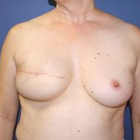
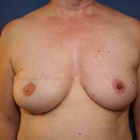
Front view
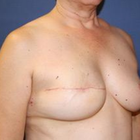
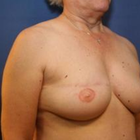
Half-side view
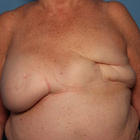
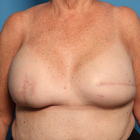
Front view
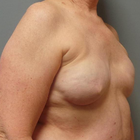
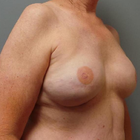
Half-side view
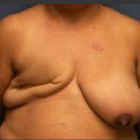
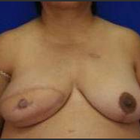
Front view
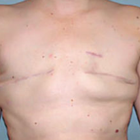
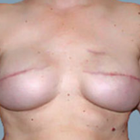
Front view
WHY US?
At Medijump, we're making medical easy. You can search, compare, discuss, and book your medical all in one place. We open the door to the best medical providers worldwide, saving you time and energy along the way, and it's all for FREE, no hidden fees, and no price markups guaranteed. So what are you waiting for?

Free

Best Price

Widest Selection

Risk-Free
What you need to know about Breast Reconstruction in Cape Town
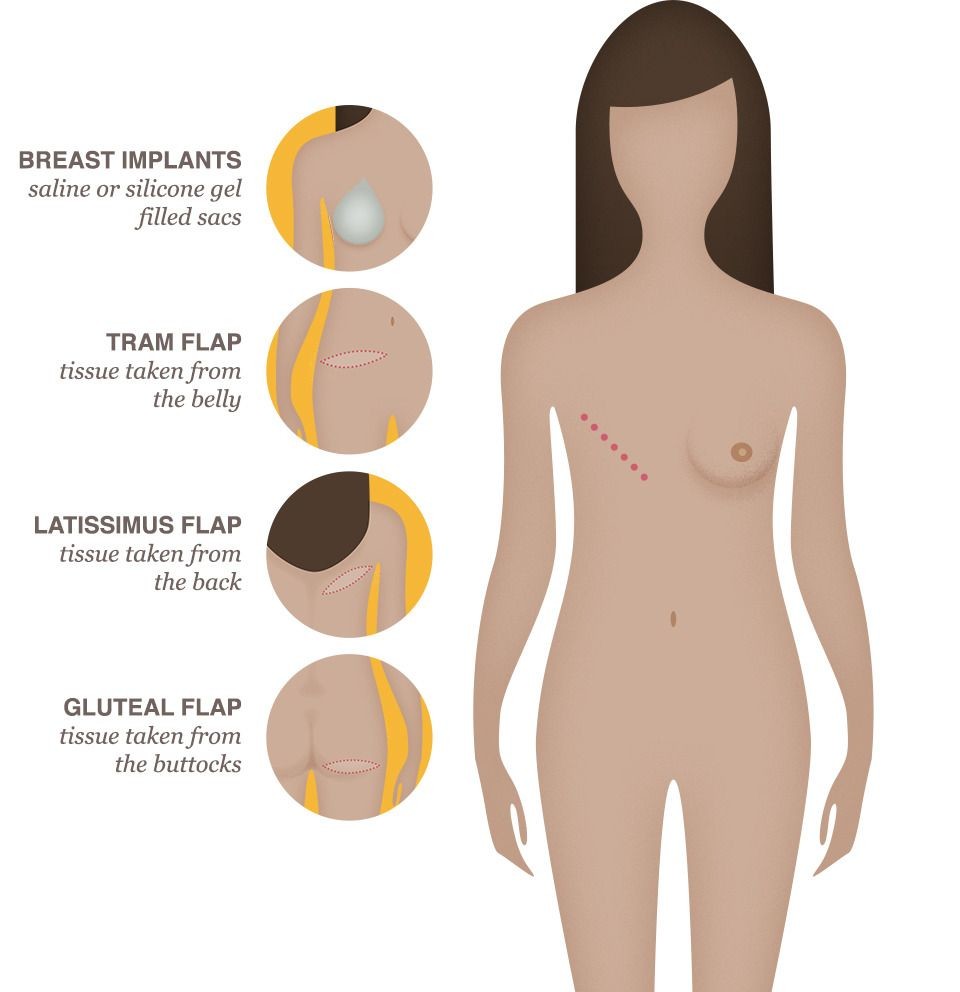
Breast reconstruction is a significant surgery undertaken to rejuvenate the physical form of a woman's chest after losing one or both breasts to cancer or another disease. In Cape Town, medical centres are well-equipped with top-tier talent in plastic surgery to facilitate this intricate procedure. Every woman's journey is different, and her treatment plan is personalized, considering her unique circumstances and needs.
It's heartening to know that breast cancer treatments like chemotherapy or radiation therapy aren't impeded by reconstruction. Moreover, this surgery doesn't spike the risk of cancer coming back. Undeniably, breast reconstruction is a major surgery with inherent risks, including chances of infection, complications with wound healing, and potential dilemmas related to implants.
What is the cost of Breast Reconstruction in Cape Town?
Undergoing surgery like Breast Reconstruction brings along a financial commitment. The expense varies extensively, depending on many factors like the complexity of the procedure, the medical professional performing the surgery, the hospital's facility, and the region, amongst others. Generally, the cost might range between $15,000 to $50,000, including multiple surgeries or intricate techniques within this estimate.
Thankfully, in many cases, insurance plans cover such surgical procedures, especially given mandates like the Women's Health and Cancer Rights Act of 1998 in the U.S. Still, out-of-pocket expenses associated with co-payment or deductibles can add up. It's recommended to navigate these aspects with your insurance provider and your chosen healthcare facility in Cape Town.
What does a Breast Reconstruction Procedure Involve?
Breast reconstruction generally happens in stages, starting with the most complex first, which may either occur at the same time as the mastectomy or later, based on the individual’s specific health conditions or treatment plan.
Two main techniques are employed in breast reconstruction. One is the use of an implant, saline, or silicone to recreate the breast shape. Two, autologous or flap reconstruction where tissue from the patient’s body like the abdomen or thigh is relocated to recreate the breast shape. The method selected is dependent on individual factors like the patient’s health, personal choice, cancer type, and stage.
After the primary surgery and post an adequate healing period, the surgeon performs a second procedure to recreate the nipple and areola. Later, to give it a natural look, the nipple-areola complex is tattooed. Remember that although it is a common procedure, complications might arise involving reaction to anaesthesia, bleeding, infection, poor healing or the need for further interventions.
How Long Should I Stay in Cape Town for a Breast Reconstruction Procedure?
Post-breast reconstruction surgery, patients typically stay in the hospital for two to five days. However, if the reconstruction was done immediately after the mastectomy, the stay could extend from three to six days.
Overall, a patient should expect to remain in Cape Town for approximately two weeks post-surgery. This allows enough time for necessary follow-ups and to address any complications, if they arise. As with any major surgical procedure, do not hasten the healing process.
What's the Recovery Time for Breast Reconstruction Procedures in Cape Town?
The recovery timeframe for breast reconstruction procedures in Cape Town varies from patient to patient. Generally, for implant-based procedures, patients may take about four to six weeks to recuperate before they return to normal routines. For more complex autologous techniques, particularly those using abdominal tissue, patients might require six to eight weeks for recovery.
Recovering patients need to temper their activities during this period. Avoid lifting heavy objects and defer strenuous exercise until your physician gives a clear signal. Medical assistance should be promptly sought if any discomforting symptoms like chronic pain, redness or swelling surface.
What's the Success Rate of Breast Reconstruction Procedures in Cape Town?
Medical success cannot just be measured in terms of complication-free postoperative progress or longevity of implants used in breast reconstruction. Patient satisfaction with their surgery, their psychological well-being following the operation, their perception of body image, and their quality of life post-surgery are equally important factors to consider. Studies indicate that between 85% to 90% of women who have undergone breast reconstruction are satisfied with the long-term results.
In Cape Town, dedicated hospitals and healthcare facilities strive to offer high-quality treatment, ensuring the best possible surgical outcomes using progressive technology and experienced professionals. Still, everyone's response to surgery varies, and outcomes depend on factors such as overall health, age, body type, and compliance with surgical advice.
Are there Alternatives to Breast Reconstruction Procedures in Cape Town?
Indeed, there are alternatives to breast reconstruction in Cape Town. The journey of every woman is unique and how she chooses to deal with the loss of a breast, or both, is a highly personal decision. Alternatives include:
- Breast Prostheses or Forms: They are silicone forms that imitate the appearance and feel of natural breast tissue. They come in diverse sizes, shapes and colours to closely match the woman's skin tone.
- Flat Closure: In this method, the surgeons sew up the chest wound smoothly, without constructing a breast mound. This option appeals to women who choose not to have more surgeries or body implants.
- Opting not to undergo reconstruction at all, also termed as "going flat: This method exhibits the woman's choice to live comfortably with her new body shape without artificial substitutes or further surgeries. It is a fully personal decision deserving respect and support.
Each of these options has pros and cons, and the choice depends on the woman’s personal preference, health status, lifestyle, and perception of her body. Regardless of the choice, it’s important to regularly monitor breast health and engage in practices that promote overall wellness.
What Should You Expect Before and After the Breast Reconstruction Procedure?
Before the surgery, comprehensive discussions with the surgeon will take place to understand treatment objectives, outcomes, and possible complications. Preoperative tests, lifestyle modifications, and nutritional advice may form a part of the preparatory process.
Postoperative care is equally important: discomfort, swelling, and bruising are normal and subside over time. Pain management strategies will be provided to help you manage discomfort effectively. Your surgeon will provide personalised guidance on caring for your surgical site, usage of medications, and physical activities.
What sort of Aftercare is Required for Breast Reconstruction Procedures in Cape Town?
The following points should be considered post-operation:
- Follow the instructions given by your doctor and take your medicines as and when prescribed.
- Consult a nutritionist for a diet plan. A healthy diet helps you recover faster.
- Do not wear a padded or underwire bra until allowed by your doctor.
- Use surgical bras in the early few days after the surgery.
- Avoid excessive unnecessary movement of your breasts.
- Do not lift heavy objects and children - it could stretch on your stitches.
- Change your bandage whenever it gets dirty. Germs can cause infection.
- Do not take a bath when the bandages are still intact. A wet bandage can also be the cause of infection.
- Abstain from sexual activity for at least 6 weeks.
- Take rest - give yourself time to recover.
How Do I Prevent Cancer from Recurring?
Preventing cancer recurrence largely revolves around a balanced, healthy lifestyle coupled with regular medical check-ups. Regular exercise, maintaining a healthy weight, and eating nutritiously can contribute to cancer prevention. Smoke cessation and limiting exposure to secondhand smoke are crucial for both prevention and postoperative recovery.
Regular breast self-examinations, as well as mammograms and follow-up visits, are critical for early detection of any recurrence. Stress management techniques like yoga, meditation, and spending time in nature can also play an essential role in overall health.
Your medical team in Cape Town is there to support you, offering advice tailored to your individual health status and medical history. Remember, proactive health checks are key to maintaining overall health and preventing the recurrence of diseases like cancer.
What is the ideal time to have Breast Reconstruction surgery after a Mastectomy in Cape Town?
The decision regarding when to have Breast Reconstruction following a Mastectomy in Cape Town is largely based on the individual's health status, treatment plan, personal preferences, and discussions with the oncology team. Breast reconstruction can be done at the time of mastectomy (immediate reconstruction) or at a later date (delayed reconstruction). Immediate reconstruction might offer psychological benefits and less overall surgery since both procedures are done together. Yet, if additional treatments such as radiation therapy are required post-mastectomy, opting for delayed reconstruction could be advisable to avoid risks posed by radiation to the new construct.
Remember that deciding on the timing of breast reconstruction is a personal choice and should be made in consultation with your healthcare providers. They can provide specific guidance based on your health condition and treatment plan.
How Will Breast Reconstruction in Cape Town Impact My Routine Mammograms and Breast Cancer Detection?
Breast reconstruction surgery may impact the way routine breast cancer screenings are conducted. After a mastectomy with or without reconstruction, women usually don't need routine screening mammograms on the treated side since all breast tissue has been removed. However, they would need routine mammograms for the untreated breasts.
If you've had reconstruction using your own body tissue, your surgeon or oncologist will guide you on whether or not you'll require mammograms on the reconstructed breast. Remember, mammograms can still be performed on reconstructed breasts, and self-breast exams should be a regular part of your health routine.
Whilst the information presented here has been accurately sourced and verified by a medical professional for its accuracy, it is still advised to consult with your doctor before pursuing a medical treatment at one of the listed medical providers
No Time?
Tell us what you're looking for and we'll reachout to the top clinics all at once
Enquire Now

Popular Procedures in Cape Town
Prices Start From $497

Prices Start From $208

Prices Start From $834

Prices Start From $500

Prices Start From $93

Prices Start From $85

Recommended Medical Centers in Cape Town for Breast Reconstruction

- Interpreter services
- Translation service
- Religious facilities
- Medical records transfer
- Medical travel insurance
- Health insurance coordination
- TV in the room
- Safe in the room
- Phone in the room
- Private rooms for patients available

- Interpreter services
- Translation service
- Religious facilities
- Medical records transfer
- Medical travel insurance
- Health insurance coordination
- TV in the room
- Safe in the room
- Phone in the room
- Private rooms for patients available

- Interpreter services
- Translation service
- Religious facilities
- Medical records transfer
- Medical travel insurance
- Health insurance coordination
- TV in the room
- Safe in the room
- Phone in the room
- Private rooms for patients available

- Interpreter services
- Translation service
- Religious facilities
- Medical records transfer
- Medical travel insurance
- Health insurance coordination
- TV in the room
- Safe in the room
- Phone in the room
- Private rooms for patients available

- Interpreter services
- Translation service
- Religious facilities
- Medical records transfer
- Medical travel insurance
- Health insurance coordination
- TV in the room
- Safe in the room
- Phone in the room
- Private rooms for patients available

- Interpreter services
- Translation service
- Religious facilities
- Medical records transfer
- Medical travel insurance
- Health insurance coordination
- TV in the room
- Safe in the room
- Phone in the room
- Private rooms for patients available

- Interpreter services
- Translation service
- Religious facilities
- Medical records transfer
- Medical travel insurance
- Health insurance coordination
- TV in the room
- Safe in the room
- Phone in the room
- Private rooms for patients available

- Interpreter services
- Translation service
- Religious facilities
- Medical records transfer
- Medical travel insurance
- Health insurance coordination
- TV in the room
- Safe in the room
- Phone in the room
- Private rooms for patients available

- Interpreter services
- Translation service
- Religious facilities
- Medical records transfer
- Medical travel insurance
- Health insurance coordination
- TV in the room
- Safe in the room
- Phone in the room
- Private rooms for patients available

- Interpreter services
- Translation service
- Religious facilities
- Medical records transfer
- Medical travel insurance
- Health insurance coordination
- TV in the room
- Safe in the room
- Phone in the room
- Private rooms for patients available
Breast Reconstruction in and around Cape Town
About Cape Town
Cape Town is the legislative capital of South Africa and is also known as the Mother City. It is the oldest city in the country and home to the Parliament of South Africa and is a major destination for immigrants and expatriates, making it one of the most multicultural cities in the world. Located on the shore of Table Bay, the city is known for its harbor, natural setting, as well as famous attractions and many tourists, visit to enjoy Table Mountain and Cape Point.
Recently, tourists also come to the city for its medical tourism. Many groundbreaking procedures and medical research in South Africa, such as the world’s first penile transplant, have put Cape Town under the radar of medical tourists from all around the globe. Thanks to its world-class healthcare and world-renowned medical practitioners, more and more people now prefer Cape Town as their medical destination. The healthcare in the city is among the best on the African continent. Other reasons such as shorter waiting times for surgeries, state-of-the-art equipment, and affordable healthcare compared to Europe and the United States, and English-speaking doctors.
Popular Areas in Cape Town
Cape Town is a natural beauty that offers a wide range of things to do and see. From culture, food, art, to nature. Listed below are some of the more popular places in the city:
- Table Mountain is one of the New 7 Wonders of Nature and it is easy to see why. The iconic mountain makes an amazing backdrop to Cape Town. The level plateau is about 3 kilometers from side to side with remarkable cliffs on the edges. The peak offers an amazing view of the city. Tourists can choose to board the cable car or discover its beautiful nature by hiking.
- Cape of Good Hope is situated within the Table Mountain National Park. The area has a mix of bio-diversity and wonderful beauty that attracts thousands of tourists to visit. There are around 250 species of birds spotted in the area. Hiking and cycling through it is the best way to discover its true majesty. Tourists can picnic and birdwatch in isolated beaches.
- Kirstenbosch National Botanical Garden is one of the most incredible botanic gardens in the world. Nestled at the eastern foot of Table Mountain, it features a natural forest and fynbos flora and sprawls around 528 hectares. The garden displays a collection of diverse South African plants with seasonal festivals such as musical sunset concerts during summer and craft markets on the last Sunday of every month.
- Groot Constantia is the oldest wine-producing estate in South Africa, located in the suburb of Constantia. The estate consists of a museum, restaurants, tasting room, and cellars. The museum was built in Cape Dutch architecture style, further into the estate; tourists will find the free orientation center which provides an overview of Groot Constantia history. Tourists can also tour the original wine cellar, have a wine tasting, or a wine and chocolate pairing.
- Boulders Penguin Colony is located in Boulder Beach on the outskirts of Simon’s Town. The beach boasts fine white sand with pristine waters and endangered African penguin colonies. Tourists can set up camp, see the penguins up close, and even swim along with the magnificent aquatic birds. Observing the penguins socializing and playing in the waves is a perfect way to enjoy your travel in Cape Town.
Weather and Climate in Cape Town
Cape Town enjoys a warm Mediterranean climate. The summer is dry and warm, lasting from early December to March. The average maximum temperature during this season is around 26 °C, and the minimum is 16 °C. The Berg Wind that arrives from February to early March can make the city uncomfortably hot for a couple of weeks.
The winter starts in June and ends in August and the season is characterized by mild and wet weather. The city also experiences strong north-westerly winds during this season. The average temperature ranges between 8.5 °C at the lowest and 18 °C at the highest.
Getting Around in Cape Town
The primary airport that serves Cape Town is the Cape Town International Airport and it is the second busiest airport in South Africa and the fifth busiest in Africa. The airport serves direct domestic flights to major cities and several small centers in the country. It also connects the country with major cities in Africa, Europe, the Middle East, and Asia. It is the hub for South African Express as well as budget airlines such as Mango and FlySafair.
There are several types of taxis: the metered taxis, Rikkis Taxis, and minibus taxis. The metered taxis can be a little expensive but are usually comfortable. Tourists can order one via a phone call or from one of the city’s official taxi stands. Tourists should always choose reputable taxi companies such as Marine Taxi, Unicab, Excite, and SA Cab.
Rikkis Taxis are painted yellow and very popular and these taxis run on a fixed fare rather than metered, so they are a little more affordable than metered taxis and a good option if you are traveling on longer journeys. Other than the Rikkis Taxis, tourists can choose the minibus taxis which are perfect for adventurous foreign travelers. The minibus taxis can be found practically everywhere and are very cheap, however, you will need to know exactly where your destination is and tell the driver when to stop. Another travel option is the MyCiTi bus, a modernized and effective bus system.
Tourist Visas in Cape Town
There are more than 60 countries listed in the visa exemption agreements, which means the citizens of these countries can stay in South Africa for up to 90 days. Other countries not listed must obtain a valid visa to enter the country. A Medical Treatment Visa is available for medical tourists. Note that all visitors must hold a passport valid for at least 30 days after the expiration of their intended visit.
Additional Information
- Local Currency: South African Rand (ZAR) is the official currency and 1 USD converts to 14 ZAR.
- Money & Payments: Tourists can find ATMs almost everywhere around the city, but you should avoid ATMs in secluded places, especially at night. Credit cards are accepted in established restaurants, hotels, and shops. It is always better to carry some cash because smaller food places are cash-only. Tipping is expected here.
- Local Language: The most common languages in the city are English, Afrikaans, and Xhosa with Afrikaans as the most widely spoken home language.
- Local Culture and Religion: The population follows Christianity, Islam, Judaism, and several other religions.
- Public Holidays: There are 12 official public holidays in Cape Town, including New Year’s Day, Freedom Day, and Christmas.
Popular Searches
- Plastic Surgery in Thailand
- Dental Implants in Thailand
- Hair Transplant in Thailand
- Breast Augmentation Thailand
- Gastric Sleeve in Thailand
- Gender Reassignment Surgery in Thailand
- Laser Hair Removal in Bangkok
- Botox in Bangkok
- Dermatology in Bangkok
- Breast Augmentation in Bangkok
- Coolsculpting in Bangkok
- Veneers in Turkey
- Hair Transplant in Turkey
- Rhinoplasty in Turkey
- Stem Cell Therapy in Mexico
- Rhinoplasty in Mexico
- Liposuction in Mexico
- Coolsculpting in Tijuana
- Rhinoplasty in Korea
- Scar Removal in Korea
- Gastric Sleeve in Turkey
- Bone Marrow Transplant in India
- Invisalign in Malaysia
- Plastic Surgery in the Dominican Republic
- Tummy Tuck in the Dominican Republic
- Plastic and Cosmetic Surgery in Poland
- Rhinoplasty in Poland
- Hair Implant in Poland
- Dental Implants in Poland
- IVF in Turkey



